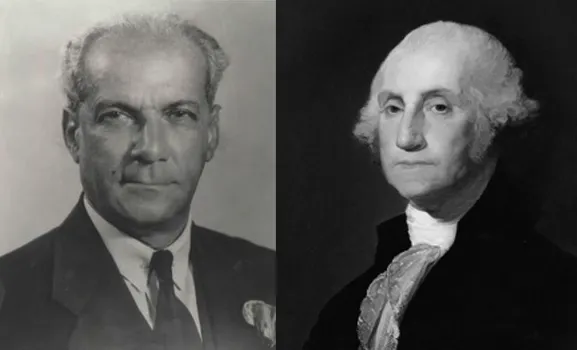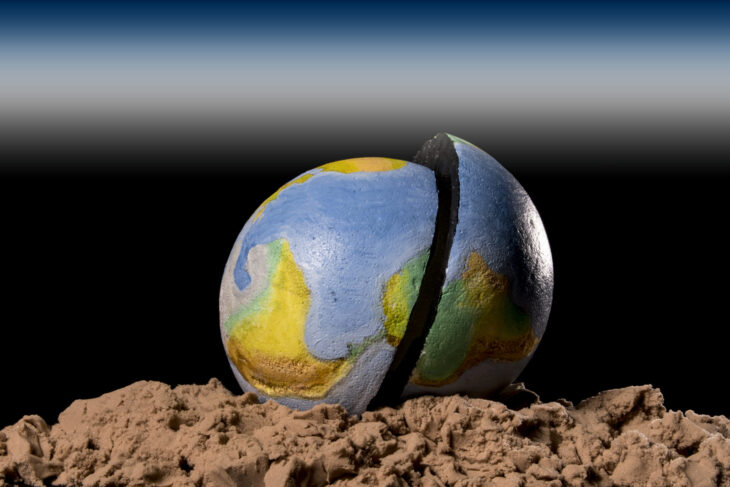
“Integrity is the lifeblood of democracy. Deceit is a poison in its veins.” — US Senator Edward Kennedy
Democracy is a great idea — a noble idea, especially against a backdrop of such political ideologies as monarchy, as oligarchy, as communism, as totalitarianism and as fascism which have all been, historically speaking, monikers of oppression. But I fear that in as much as it bears the seeds which could germinate and then grow into, veritably, lush and wide vistas of hope and of great human achievement, that they have all been planted into imperfect, fallow soil, some, more or less, which possessed the required elements for a prodigious and a lasting democratic bounty. Therein lies the problem — the soil. The soil. The people.
For democracy to work it requires honest and noble men and women, in any electorate and in any political directorate, to embrace the ambitions of its noble tenets and to step forward and exert themselves, courageously and selflessly, on its behalf. This is the basis of my grave fear, and also of my nagging doubts for its future — both near and far — in our modern world. We seem to be running out of good soil. Good politicians are at a premium.
Integrity, in any political landscape, does not mean the total absence of political disagreements or of friction. It was out of these social realities that democracy was conceived, was birthed, was suckled and was made to develop in order to manage such inevitable tempestuous dynamics. One can dislike, even hate, one’s political opponent, and one might not hold one’s opponent in high esteem, but one can revere the noble and the unselfish ideals which are enshrined in democracy by subordinating one’s selfish and often one’s narrow natural impulses to them for the greater good. Democracy needs people who are not stymied by parochial political partisanship. But who and where are they?
There is the saying, by one unknown, that “Democracy is two wolves and a lamb voting on what to have for lunch. Liberty is a well-armed lamb contesting the vote!” That statement revealed that democracy does not and cannot rest, solely, upon the idea of a majority vote, but, in addition to that, it must contain a sincere, a sensitive, a sustained and a disciplined recognition of the rights and of the well-being of those who happen to find themselves within the minority and who are extremely vulnerable. It expects that although the majority has gained the moral and the material right to exercise power on behalf of or governance overall, that such power ought not to be abused thus bringing about harm. And yet, there is nothing to make the wolves respect the right of the lamb to exist, even if such demands are codified in law. The respect for and the execution of law require integrity.
There are many examples in history of individuals who displayed the type of integrity of which I speak which made it possible for democracy to take root and to flourish. One such example came from Jamaica, the land of my birth, in the person of The Right Excellent Norman Washington Manley, one of seven individuals who were elevated to the status of National Hero. Mr. Manley, who was a statesman, served as the first and the only Premier of the country. He was an advocate of universal suffrage, which was granted by the British colonial government to the colony in 1944. He led the People’s National Party (PNP), which he helped to found, in every election from 1944 to 1967. His contribution to Jamaican life resulted in the New Constitution of 1944, granting full adult suffrage.
Mr. Manley served as the colony’s Chief Minister from 1955 to 1959, and as Premier from 1959 to 1962. He was a strong proponent of self-government but was persuaded to join nine other British colonies in the Caribbean territories in a Federation of the West Indies but he, selflessly, called for a referendum on the issue in 1961. Voters chose to have Jamaica withdraw from the union. He then opted to call a general election, even though his five-year mandate was barely halfway through. He lost that election and, like the statesman that he was, he graciously and wisely conceded power to his cousin, Sir Alexander Bustamante of the Jamaica Labour Party (JLP), another National Hero, who became the independent country’s first prime minister. And in that context, one could ask, what would Jamaican democracy have looked like today had Mr. Manley behaved otherwise? What if he had fought, might and main, to hold on to power despite the will of the people? A man of integrity he was indeed.
Since the life and times of Mr. Manley, there were moments in Jamaica’s history when the country was severely tested by political tribalism and violence. Most notable of such blotches on the nation’s historical trek towards a more mature and a more secure democracy was the violent general elections which took place in 1980. And yet, and not without struggle and not without lapses, men and women in leadership of both the PNP and the JLP managed to spurn their selfish inclinations and to subordinate them to the will of the Jamaican people at the ballot box.
The irony is that Jamaica is a very young democracy of a little over 60 years in age in comparison to that of the United States. The latter has boasted itself as the world’s oldest democracy, for hundreds of years, and yet with Jamaica appearing to be more mature, more settled and more at peace than her older and much larger counterpart, especially in recent times. Is Jamaica out of the woods as far as my fear for the demise of democracy is concerned? By no means, it is not.
Like Mr. Manley, Mr. George Washington, the first President of the United States of America, set the tone of political integrity and selflessness for all who were to succeed him. The country had about three hundred years head start ahead of Jamaica and so many other democracies to practice and to get it right, towards “a more perfect union”.
In September 1796, worn out by burdens of the presidency and from the attacks of his political foes, President Washington announced his decision not to seek a third term. With the assistance of Mr. Alexander Hamilton and Mr. James Madison, President Washington composed a “Farewell Address” to the American people which turned out to be his political legacy to the country. He could have doggedly held on to power, and he could have used the might of the federal government to squash his political opponents, but he chose not to do so for the good of his fledgling nation. A man of integrity and a man of unselfish courage indeed. And yet, despite his stirring example, there were moments when American democracy teetered on the tightrope of survival, and the American Civil War, which was waged between April 12, 1861 and April 9, 1865, served as a woeful and bloody stain on its history. And yet, on the jagged ridges and within the dark valleys of American history there have been men of integrity of the ilk of Washington, even in, relatively speaking, modern times who demonstrated integrity by their devotion to the democratic ideals and process.
President Lincoln, a Republican, could have exacted full political revenge upon all those who had rebelled against The Union, but he did not. President Johnson, a Democrat, in the face of political opposition to his foreign policy, and despite enviable achievements in his domestic policy, chose not to run for re-election. Vice-President Gore, a Democrat, although losing a presidential election in the most controversial manner, conceded, acknowledging his political rival as the next president of the United States. Vice-President Pence, a Republican, against immense pressure to break the law so that he and his boss could hold on to power, despite the will of the electorate, even at the risk of his life and that of his family, stood his ground. We need good people.
Congresswoman Cheney and Congressman Kinzinger, both Republicans, who stood to benefit from an opportunity to hold on to their seats, defied the unscrupulous within their own party to renounce and to investigate a president, in their own political party, who had sought to destroy the guardrails of their democracy. These are examples of individuals of political integrity, the gaskets and the pitch between the cold and the hard joints of law and political tradition, which prevented the flood of anarchy and of totalitarianism on to the political landscape.
President Biden, a Democrat, due to opposition within his very own political party, recently announced his decision not to run for re-election this year, in 2024, in true George Washington-esque fashion.
The numbers of such people within the United States and, indeed, elsewhere in the world seem to be dwindling. Prime Minister Netanyahu of Israel along with the Republican presidential nominee in the United States seem to have other ideas which cut across the grain of the fine traditions of democracy. The Republican nominee, in speaking to Evangelicals quite recently, was quoted as saying: “In four years, you don’t have to vote again. We’ll have it fixed so good, you’re not gonna have to vote” if they vote for him this November. Whither democratic political integrity? Whither democratic idealism?
And so, although I am heartened by the progress made in the land of my birth, Jamaica, with respect to the, relatively, smooth and peaceful transition of power my fear remains unquieted by the assurances given by the proponents of this political experiment called democracy. And although I am encouraged by members of the GOP and of the DNC, here in the United States, joining hands to hold up the pillars of democracy, I have deep seated concerns about the future. My fear for democracy is not a numb nor is it a paralyzing fear, but one which has apprised me to the threat posed by the other ideologies mentioned earlier in this opinion piece, and one which ever keeps me on alert in the fight to keep the flame of democracy burning — by praying about it, by talking about it, by writing about it, by voting for the continuance of it, and by doing whatever else that fate might deem necessary for me to do, as flawed as it is, in order to maintain its place in the world so that we do not allow our political passions and our other beliefs to disrespect each other, to encroach upon each other, and to try to rip the throats from each other without protection and without recourse. Political integrity is an indispensable glue for democracy.
In closing, I refer to the words from a song written by the late British songwriter and singer, John Lennon. Although, as a Christian, I have one or two theological reservations about it, his point was well taken. The song, titled Imagine, which has been used as the theme song for many summer Olympic games, not excluding 2024, serves as a reminder of what democracy is trying to achieve until The Divine establishes something more perfect and more lasting in this world:
Imagine there’s no heaven
It’s easy if you try
No hell below us
Above us, only sky
Imagine all the people
Livin’ for today
Ah
Imagine there’s no countries
It isn’t hard to do
Nothing to kill or die for
And no religion, too
Imagine all the people
Livin’ life in peace
You
You may say I’m a dreamer
But I’m not the only one
I hope someday you’ll join us
And the world will be as one



